Developing a transparent, efficient, and deeply integrated stock market
Following FTSE Russell's decision to upgrade Vietnam's stock market from frontier to secondary emerging, Nasdaq in the US and London Stock Exchange in the UK simultaneously changed the look of their buildings to congratulate Vietnam on achieving a memorable milestone in 25 years of market formation and development. Mr. Bob McCooey, Vice President of Nasdaq, also shared on social media that he was very lucky to be in Vietnam at this historic moment.
Regarding the upgrading of Vietnam's stock market, Prime Minister Pham Minh Chinh issued Official Dispatch 192, requesting the Ministry of Finance to direct the State Securities Commission to continue to closely coordinate with the international rating organization FTSE Russell to ensure the official transition process according to the roadmap; to preside over and coordinate with the State Bank and relevant ministries and branches to synchronously deploy solutions to create maximum convenience for domestic and foreign investors to access the market; to shorten the time to open indirect investment accounts and payment accounts for foreign investors.
At the same time, proactively perfect the legal framework, reform administrative procedures, modernize and digitize market infrastructure, improve governance quality, strengthen supervision, ensure security, safety and market stability, aiming to develop the Vietnamese stock market to be increasingly transparent, effective, modern, sustainable, more deeply integrated into the global financial market, becoming an important medium and long-term capital mobilization channel, mainly for economic development in the new era of development of the country. Strictly prohibit, inspect and strictly handle negative phenomena in purchasing goods to push up prices, inflate prices, distort the market and gain personal gain.
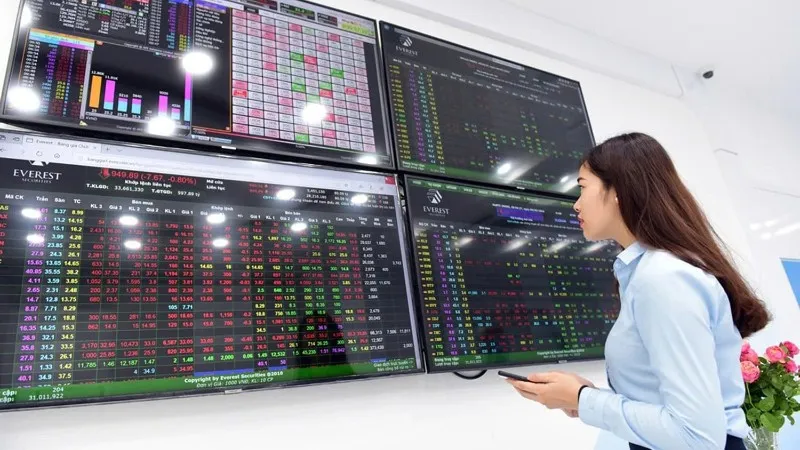
Vietnam's stock market upgraded to secondary emerging market. Illustrative photo.
On October 10, the State Securities Commission also held a conference to disseminate the amended and supplemented contents of the Securities Law and detailed implementing regulations. In particular, a series of breakthrough mechanisms were updated to market members, aiming to contribute to enhancing the attractiveness of the Vietnamese market.
It can be divided into 3 notable policy groups: Improving transparency and efficiency of offering activities; Strengthening inspection and supervision, improving compliance; Removing existing obstacles and shortcomings. In particular, the most prominent point of Decree 245 is the linking of listing activities with public offering activities of enterprises, instead of having to wait for the IPO to be completed before being able to complete listing procedures as before.
Mr. Hoang Van Thu - Vice Chairman of the State Securities Commission said: "Linking IPO with listing for enterprises, this is also a breakthrough in the recent legal regulations. Within 30 days, there are results between IPO and listing, not 90 days or 120 days as before. This is also one of the solutions we are moving towards upgrading the market as the Prime Minister has just issued. This solution creates opportunities for enterprises to enter the market. Especially foreign investors after we were upgraded, they are very interested in this content".
Developing new products, attracting foreign capital
It can be seen that after Decree 245 was issued, linking the IPO process with stock listing, shortening the time to go public. The market is witnessing a wave of listing and transferring stock to HOSE of many quality enterprises in various industries such as finance, consumer goods, and real estate.
In the context of the Vietnamese stock market being upgraded to an emerging market, creating new products to catch up and attract foreign capital is very important. Upgrading is not simple, maintaining the ranking is much more difficult.
From the beginning of 2024 to March 2025, the trading ratio of foreign groups and securities companies only accounts for a very low proportion of the entire market, approximately 5% to 6%. This data shows that foreign investors are not interested in the Vietnamese derivatives market. Therefore, experts believe that the newly launched VN100 index futures product has a lot of significance for this market.
According to the experience of countries around the world, many markets not only trade Futures Contracts (FCs) on index baskets with a small number of component stocks, but also trade Futures Contracts products on indexes with a larger number of component stocks such as Nikkei 225, KRX 300...
Mr. Bui Hoang Hai - Vice Chairman of the State Securities Commission informed: "We will facilitate the development of a series of funds, and at the same time diversify index regulations to facilitate the introduction and application of a series of new indexes".
"Most derivatives markets in countries have index-based futures contracts with a low number of component stocks and futures contracts with a high number of component stock indexes. Therefore, implementing the VN100 futures contract when we already have a relatively successful VN30 futures contract product is appropriate," said Mr. Nguyen Quang Thuong - Deputy General Director of the Vietnam Stock Exchange.

Vietnam has been upgraded to an emerging market status by FTSE Russell, opening up opportunities to attract foreign capital and promote reforms for more transparent and sustainable development. Illustrative photo.
The VN100 index is less affected by fluctuations in the top 10 stocks with the largest market capitalization, helping to limit the unusual impacts of the underlying market on the derivatives market. At the same time, it contributes to diversifying products, increasing the representativeness and depth of the Vietnamese derivatives market.
According to Ms. Nguyen Ngoc Linh - General Director of DNSE Securities JSC: "The representativeness of the VN100 index is enough to cover more than 89% of market capitalization. This helps foreign investors have more options when using this index to hedge their portfolios for the main purpose they want to use it for."
"The more indices we have and on that basis, the more ETFs we have. This makes trading better, especially for individual investors when choosing individual stocks becomes more and more difficult in the later stages of the market development," said Mr. Pham Luu Hung - Chief Economist, SSI Securities Corporation.
With the advantages of diversifying products in the derivatives market, increasing the ability to hedge risks, and limiting major fluctuations from the market, it will contribute to promoting the sustainable development of the Vietnamese stock market in both scale and depth, successfully implementing the Strategy for developing the Vietnamese stock market to 2030 approved by the Government.
Necessary reforms for Vietnam's stock market
The Vietnamese stock market has a clear strategy, with specific goals. Not only FTSE Russell, but also aiming to join the MSCI index basket. VTV reporters also discussed with international experts - from Nasdaq to ING bank - to outline the path to upgrading the market after the global upgrades. Experts believe that after the upgrading milestone, the Vietnamese stock market is facing a historic opportunity - but also a test of reform capacity.
"With a newly upgraded market like Vietnam, more and more investors are interested - including investment funds that are now allowed to invest, while they were not able to before. When that happens, the new interest in Vietnam will lead to increased liquidity, and that liquidity will continue to attract new capital flows. This will strengthen the confidence of domestic enterprises when listing, because they realize that their stocks will have higher liquidity and be more attractive to a completely new group of shareholders," said Mr. Bob McCooey - Vice President of Nasdaq.
Mariam Sherman, World Bank Country Director for Vietnam, Cambodia and Laos, said: "This upgrade is a recognition of Vietnam's many years of sustained reform, from strengthening the Securities Law, implementing a new trading system, to preparing for a more modern market infrastructure for payment and clearing.
But beyond FTSE Russell, the next big goal is to be recognised by MSCI – the largest global index provider. Achieving that would be groundbreaking, potentially attracting three to four times more investment than an FTSE upgrade. To achieve this, Vietnam needs to continue reforms – particularly on foreign ownership limits, implementing a new clearing and settlement system, and strengthening foreign exchange management.
According to Mr. Carsten Brzeski - Economist at ING Bank: "With the upgrade by FTSE Russell, I think this is a huge step forward in opening up Vietnam and making the market more attractive to foreign investors. After all, the stock market is one of the mirrors of the economy. Therefore, it is now important that the economy and macroeconomic policies continue to maintain the strong growth momentum that Vietnam has had in recent years.
It would be advantageous for Vietnam to maintain a sustainable and sound policy framework – including a stable fiscal balance, a monetary policy oriented towards controlling inflation, and a financial system that is open to foreign investors but does not accept excessive risk. In addition, there will be a large amount of foreign capital inflows and using this capital in a way that does not create an asset bubble is clearly one of the major responsibilities of policymakers."
Experience after upgrading to emerging market status
Fast and strong growth, but still need to ensure stability and sustainability. Many emerging markets have also experienced historical milestones like Vietnam at this time and certainly this will be valuable experience for Vietnam to refer to and continue to perfect the structure and consolidate its position on the global financial map.
In the Middle East - where many stock markets have been upgraded from frontier markets to secondary emerging markets closest to Vietnam such as Qatar, the United Arab Emirates (UAE), Saudi Arabia and Kuwait, exchanges have continued to launch a series of extensive reforms to consolidate their positions, creating conditions for strong foreign capital inflows after being upgraded.
First, countries have significantly loosened foreign ownership regulations to increase the attractiveness of their markets. Qatar has raised the ceiling from 25% to 49% for most businesses, while the UAE allows international investors to hold 100% of shares in 13 sectors. Along with that, they have learned from the experience of inspection and supervision from developed markets such as the US, Japan, or Europe.
"In Europe, we have learned important lessons about the role of banking supervision and financial market supervision, and this is an area where Europe has made great strides since the global financial crisis," said Carsten Brzeski, chief economist at ING Bank. "One of the key elements of reform is financial system management, to avoid boom-bust cycles, avoid excessive speculation and prevent fraud, as well as increase market transparency and investor confidence."
Trading infrastructure has also been modernized. Kuwait has adopted a new trading model that allows for stock borrowing and short selling to increase investor flexibility, while also implementing a mechanism to prevent price manipulation. In addition, exchanges have focused on improving transparency and governance. Qatar, for example, is now pushing listed companies to publish ESG (Environmental, Social, Governance) and sustainability reports according to international standards.
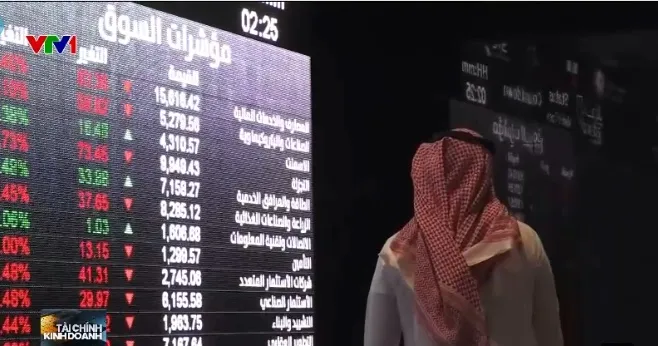
In the Middle East, exchanges have continued to roll out a series of sweeping reforms to strengthen their positions, creating conditions for strong foreign capital inflows after being upgraded.
In an interview with VTV reporter with Finance Minister Nguyen Van Thang right after Vietnam received the news of upgrading, the Minister emphasized that upgrading is not a destination but a journey to develop the Vietnamese stock market to grow in quality, transparency and sustainability. Thereby aiming for higher and further goals, especially to make the stock market an important medium and long-term capital mobilization channel, mainly for economic development in the new development era of the country, exactly as the Prime Minister emphasized in the recently issued telegram 192.
Source: https://vtv.vn/sau-nang-hang-co-hoi-va-thach-thuc-cho-thi-truong-chung-khoan-viet-nam-10025101106244015.htm







![[Photo] Discover unique experiences at the first World Cultural Festival](https://vphoto.vietnam.vn/thumb/1200x675/vietnam/resource/IMAGE/2025/10/11/1760198064937_le-hoi-van-hoa-4199-3623-jpg.webp)
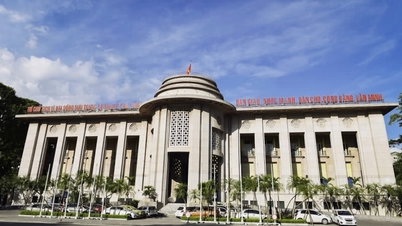





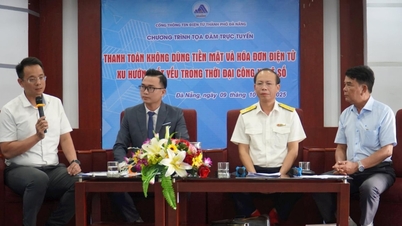

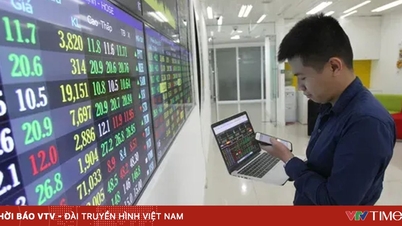
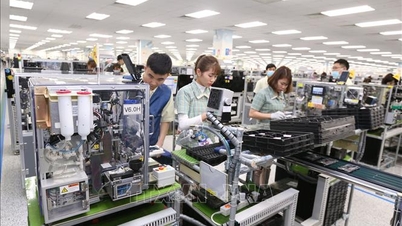
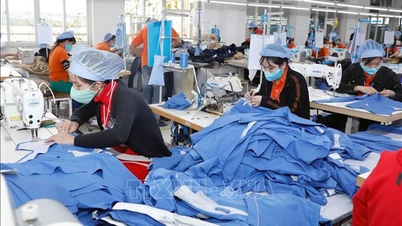


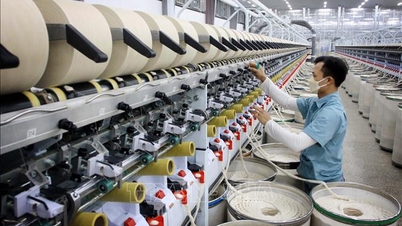
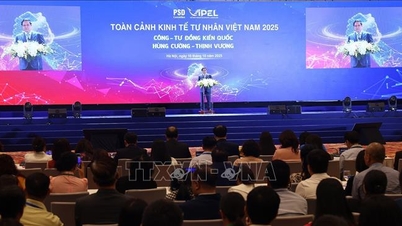
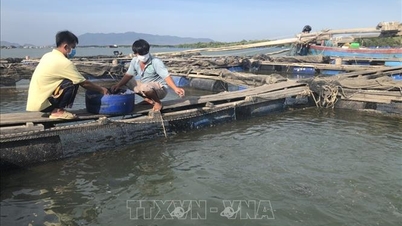





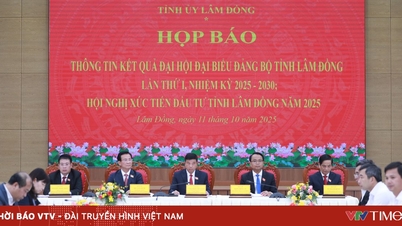
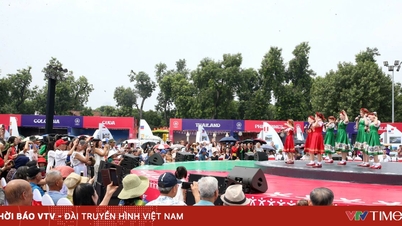


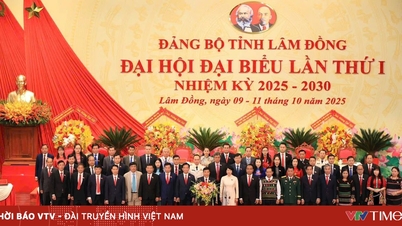
![[Photo] Opening of the World Cultural Festival in Hanoi](https://vphoto.vietnam.vn/thumb/1200x675/vietnam/resource/IMAGE/2025/10/10/1760113426728_ndo_br_lehoi-khaimac-jpg.webp)
![[Photo] General Secretary attends the parade to celebrate the 80th anniversary of the founding of the Korean Workers' Party](https://vphoto.vietnam.vn/thumb/1200x675/vietnam/resource/IMAGE/2025/10/11/1760150039564_vna-potal-tong-bi-thu-du-le-duyet-binh-ky-niem-80-nam-thanh-lap-dang-lao-dong-trieu-tien-8331994-jpg.webp)
































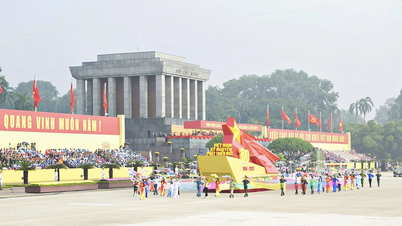






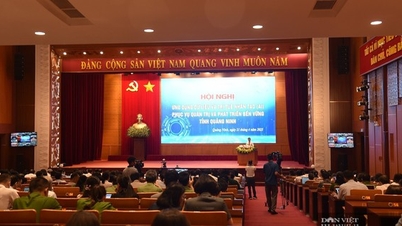



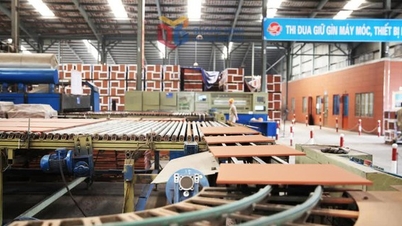
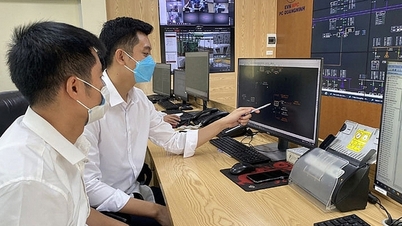
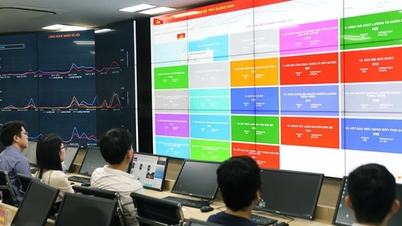






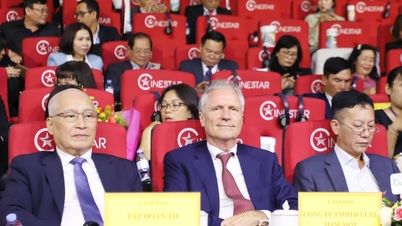


















Comment (0)